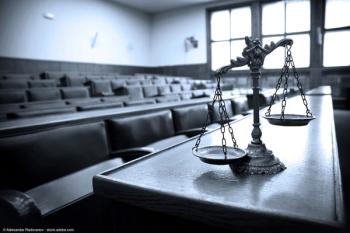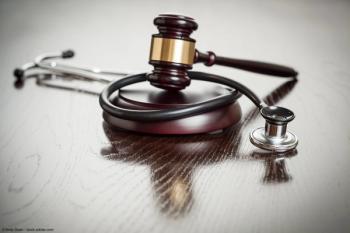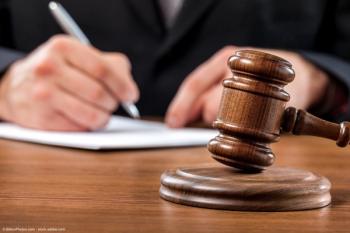
- Vol 49 No 09
- Volume 49
- Issue 09
Urology Malpractice: The deposition process
Deposing witnesses allows for presentation of factual issues in a case.
Wager is an attorney in the Columbus, Ohio, office of Reminger Co, LPA. She specializes in malpractice defense and insurance litigation. Please contact her at awager@reminger.com with any feedback or comments on this column.
Once a medical malpractice lawsuit is filed, there are often many unknown facts and issues in the case. What does the opposing party have to support their allegations or defenses? Who are they going to call as a witness? What is that witness going to say?
Parties have a right to investigate this information through a process called “discovery.” The purpose of discovery is to find out information about the other side’s claims and defenses, which allows parties to develop their own cases and analyze the strengths and weaknesses of their case. To do this, parties will use legal tools, such as interrogatories (written questions), subpoenaing relevant documents, and seeking admission on certain issues in the case. However, 1 of the other important tools used to gather information is taking a deposition.
What is a deposition?
Depositions are an essential and helpful part of our legal adversarial system. In short, a deposition is a question-and-answer process in which a witness provides an oral statement before trial, under oath.
Anyone who may have knowledge of the facts related to the lawsuit can be deposed. Therefore, it is an excellent way to determine the factual issues in the case, as well as what that witness is going to say at trial.
What is the purpose of a deposition?
There are many reasons why a party may want to take a witness’ deposition. A primary purpose is to determine what the witness knows. Unlike what popular television shows portray, parties do not like or expect surprises at trial. Doing so is frowned upon and considered unfair. Taking depositions helps eliminate the opportunity for surprise by allowing the parties to hear what the witness will testify to at trial.
Another important purpose of a deposition is to preserve the witness’ testimony. Before answering any questions, the witness will get sworn in the same way they would before taking the stand at trial. Because the witness is speaking under oath, they are providing testimony. This makes it possible to use the witness’ testimony at trial if they are unavailable. For example, if there is a witness who has relevant testimony for a party’s case, but falls ill or passes away, that party would likely be able to use that witness’ deposition testimony at trial.
Like the other forms of discovery, depositions help parties analyze the strengths and weaknesses of their case. One of the main benefits of the deposition vs other discovery tools, such as answering written questions, is that parties can see the witness testifying in person. This means that they can examine mannerisms, appearance, and are able to make a better determination of the witness’ credibility.
What happens in a deposition?
Depositions are not generally taken in a courtroom or in front of a judge. Instead, they usually take place in law offices, hotel conference rooms, or the court reporter’s office. A court reporter will be present to transcribe the entire conversation on the record. The deposition may also be videotaped, which usually happens when a party suspects the witness will not be available at trial.
Once the witness is sworn in, the attorney taking the deposition will ask the witness about facts and events related to the lawsuit. Because 1 of the purposes of a deposition is to discover everything the witness knows about the events related to the lawsuit, questions asked during a deposition can be much broader than what is allowed at trial. Attorneys may object to certain questions asked, but the witness will most likely still be required to answer. The attorneys make objections simply to preserve them for a judge to rule on later, as the judge will not be present during the deposition to make the ruling in real time.
Depositions can range anywhere from 30 minutes to 1 week, depending on the nature of the case and the witness’ knowledge. No matter the length of the depositions, every deposition is important. The witness is testifying under oath, so providing false statements may have both civil and criminal consequences. Thus, it is critical that the witness listen to the questions carefully before answering and only provide truthful answers, even if that means answering, “I don’t know.”
Articles in this issue
over 4 years ago
Lithotripters Trilogy and ShockPulse-SE show efficacy for stonesover 4 years ago
Multiparametric-MRI in prostate cancer: An expert’s viewover 4 years ago
Proinflammatory diet linked to testosterone deficiencyNewsletter
Stay current with the latest urology news and practice-changing insights — sign up now for the essential updates every urologist needs.






